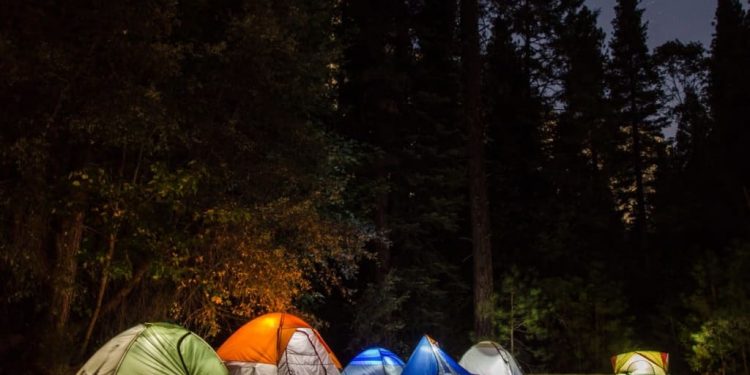
Safe Camping during Hunting

Camping is a great way to go outside and, enjoy time with friends, and take in the beauty of nature. During hunting season, however, embarking on a camping excursion, especially deep in the woods, is not without risk.
The size of wilderness areas is shrinking as the population grows, requiring hunters to share the woods with other outdoor lovers. Accidents are the terrible result. Campers and their pets are sometimes mistaken for game and killed. Many of these mishaps may be prevented.
Useful tips during hunting:
- Just like with any camping trip, make sure people know where you’ll be and when you’ll be back.
- Caps, jackets, and backpack covers should all be orange. During hunting, several states even mandate hikers and hunters to wear orange. Because many hunters will be hunting for a deer’s white tail, white and brown are bad color options for deer season.
- Make a sound by talking with each other, the forest, or oneself. Play the flute, whistling, or sing tunes. Struggle and crash your journey through the forests, doing whatever you can to alert others to your presence. If you hear gunfire, call to alert hunters to your location.
- Have an orange collar, jacket, or something reflective if you are hiking with a dog. A ring on the collar would not only protect your pet from hunters, but it will also scare away wolves before your pet has an opportunity to engage with them.
Read more “how to attach bait to rod Stardew”.
Best camps for hunting:
Spike Camp:
Spike camp is a popular option for hunters at the start of the season. It is actually the best time to set up camp in a high-mountain area since it provides hunters with an excellent view of the neighboring treelined.
You can observe wild creatures, examine for feeding trends, and plan their next movement from here. It is advisable to pitch a tent and sleep there instead of climbing the mountain every day to save time and energy.
The only disadvantage to putting up a spike camp is that it takes a large amount of equipment to be effective. For example, you will need a complex shelter, optics such as a scope that allows you to see far away, and performance clothing that operates in a variety of weather conditions.
Bivouac camp:
The Bivouac camp particularly popular among hunters, but the methods applied in this kind of camping can be adapted to a variety of hunts. It may necessitate a few adjustments, but it will be well worth it in the end. It’s perfect for when you’ve found a bull you want and need to stick with him till you can shoot it.
But unlike spike tent, which you build once and use for the duration of the hunting, a bivouac camp is dismantled every day. A bivouac camp must be extremely light to be efficient. Because you may always be on the go, a lightweight campground which you can carry with you and put up quickly is excellent.
Rut Camp:
Animals are not really thinking properly during the spring, so you may easily catch animals. The greatest suggestion in this type of camping situation is to avoid crowds. River crosses, steep valleys, and other comparable sites should all be looked for.
It’s definitely a nice site for a seasoned hunter if it looks like something that would keep a weekend hunter away. Even if you are unfamiliar with a location, maps can help you locate it.
Look for public property lines as well as private property lines. It’s critical to understand property borders so you don’t go hunting on the incorrect land.
For further reading: skooknewsmagazine.com